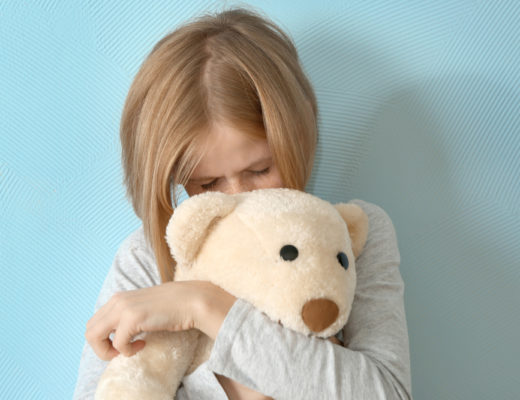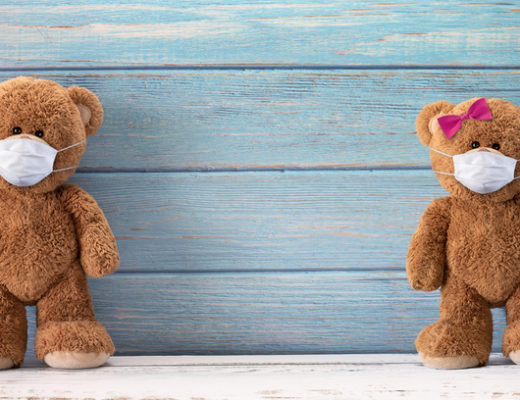
We all know that sleep is essential to children’s health. But did you know that a recent study found that even 39 minutes of less sleep per night can negatively affect kids? This loss of 39 minutes of sleep can lead to a lot of negative things, including increased anxiety.
The Negative Effects of Children’s Sleep Loss
A 2022 study examined the relationship between sleep loss and children’s diet and movement. One group of children was given one additional hour of sleep and one group was given one hour less of sleep.
The results found that even mild sleep loss in children 8-12 may be a contributing factor to weight gain. Mild sleep deprivation was found to increase the amount of ultra-processed foods consumed with no apparent change in appetite levels.
These changes signify that sleep loss has much more of an effect on kids than simply making them tired. Sleep loss not only has a negative effect on children’s eating.
When kids are tired they may experience:
- Increased anxiety
- Decreased focus
- Irritability
- Less frustration tolerance
- More feelings of hopeless, sadness and depression
Why is Children’s Sleep So Important?
A research study recently published in the Journal of American Medicine (JAMA) highlighted the importance of sleep related to kids’ overall well-being. The study featured 100 kids ages 8 to 12 living in New Zealand. The children were given manipulated bedtimes where their sleep time was reduced by 1 hour every night. The children and their parents were then given questionnaires to rank sleep disturbances during the night and impairments during the day.
The results found that even 39 minutes of less sleep per night caused significant reductions in physical well-being, coping at school, and health-related quality of life (HRQOL).
These decreases aren’t the only areas where children’s’ quality of life is diminished by lack of sleep either. Mild sleep loss, like the one featured in the study, can have negative impacts on a whole host of other issues such as social support, dietary intake, and movement.
How to Increase Children’s Sleep
Researchers say that a nightly bedtime routine is one of the best ways to maintain a healthy sleep schedule. Pushing bedtimes back by increments of 15-minutes is also a great way to introduce more sleep into children’s’ lives.
A 2021 study from the University of Stanford found that after practicing mindfulness, kids gained more than an hour of sleep per night. Within this hour of gained sleep, almost a half hour was REM sleep, an important stage of sleep responsible for emotional processing and brain development, among other important functions.
Meditation and mindfulness benefit other areas of children’s lives too. Decreased anxiety, increased focus, more empathy, and stronger immunity are among the myriad of benefits children can experience.
This shows that even a slight increase in sleep for children can have a domino effect and positively impact their well-being.
Additional Ways to Enhance Your Child’s Bedtime Routine
Dim Lights and Soft Sounds. Make sure you turn off all cell phones, tablets, computers, etc. after dinner. The bedtime routine should be calming, and dim lights and soft sounds help make this possible. Numerous research studies have shown that the light from these devices can keep us awake since it blocks production of melatonin, a sleep hormone that our body needs to fall asleep. Play soft music during your child’s night time routine. Using an instrumental or nature-sounds track is very calming to the nervous system and helps them feel safe and comfortable.
Time to Talk. Give each of your kids at least 10 minutes of one-to-one time with you at bedtime. You might want to play soft music in the background, diffuse an essential oil, and have the lights dim. Do not have your cell phone with you, and make sure you give your child your undivided time and attention. They may bring up worries from the day, which always seem to resurface at bedtime. They may need reassurance. They may need nothing but your presence. I if they don’t have a lot to share, you can share the things you are grateful for that happened during the day, you can share some things you admire that they did that day, or you can make it a time of saying positive affirmations.
Bedtime Story. All kids love bedtime stories. (Grown-ups do too.) Even if your child is old enough to read, there is something very calming and soothing about listening to someone read you a story. Let your child pick a book. Picture books are wonderful for little ones and they can get lost in the beautiful artwork in addition to enjoying the story. For older kids, you could read a chapter or a few pages of a book they are reading.

By signing up, you’ll also receive your free guide with 20 ways to comfort your child…mind, body and spirit.






 in Ohio
in Ohio
No Comments